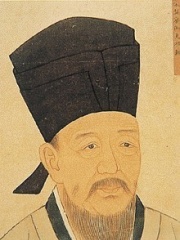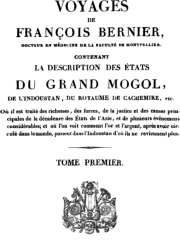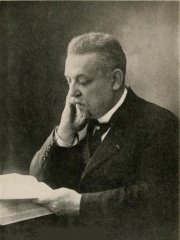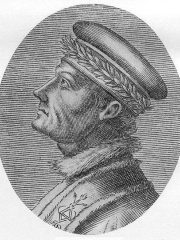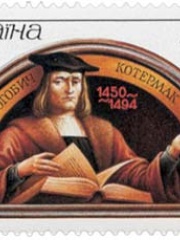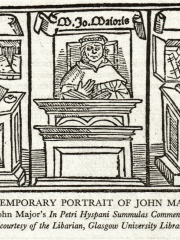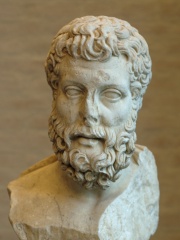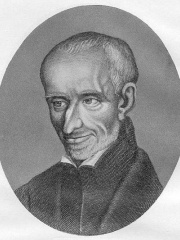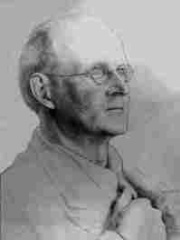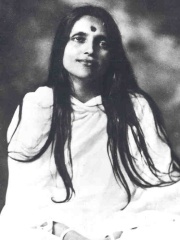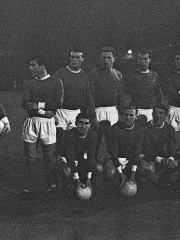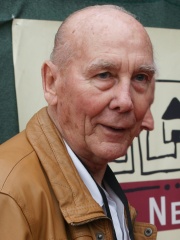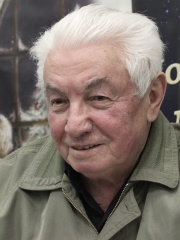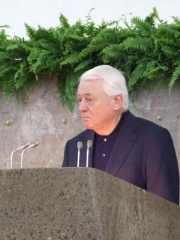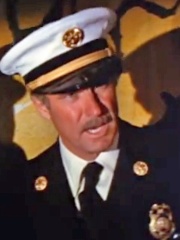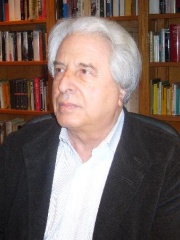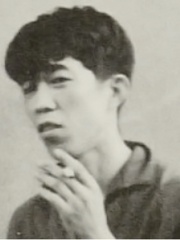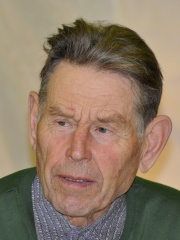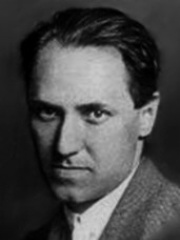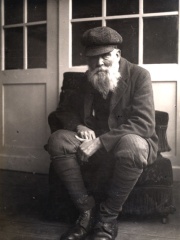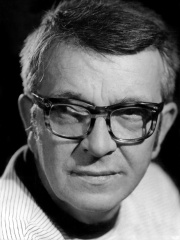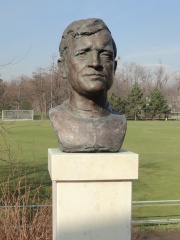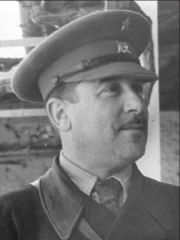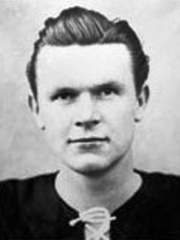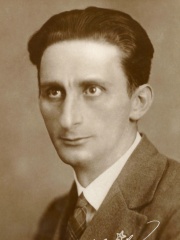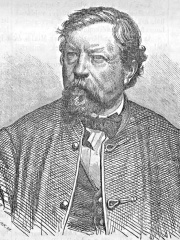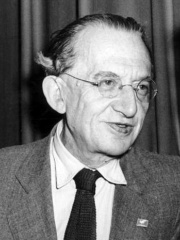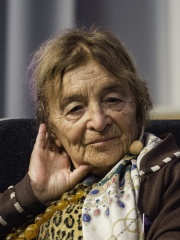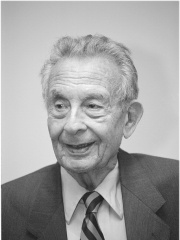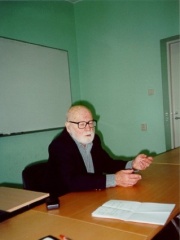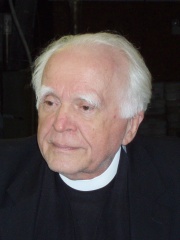Philosopher
Ervin László
1932 - today
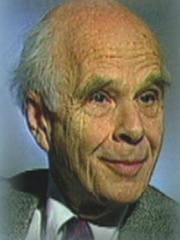
 Ervin László
Ervin László
Ervin László (Hungarian: [ˈɛrvin ˈlaːsloː]; born 12 June 1932) is an American philosopher of science, systems theorist, integral theorist, originally a classical pianist. He is an advocate of the theory of quantum consciousness. Read more on Wikipedia
His biography is available in 18 different languages on Wikipedia. Ervin László is the 857th most popular philosopher (up from 934th in 2024), the 305th most popular biography from Hungary (up from 342nd in 2019) and the 5th most popular Hungarian Philosopher.
Memorability Metrics
Page views of Ervin László by language
Among Philosophers
Among philosophers, Ervin László ranks 857 out of 1,267. Before him are Cheng Hao, François Bernier, Émile Boirac, Francesco Filelfo, Jean Guitton, and Yuriy Drohobych. After him are John Major, Metrodorus of Chios, Denis Pétau, Claude Lefort, Charles Kay Ogden, and Anandamayi Ma.
Most Popular Philosophers in Wikipedia
Go to all RankingsCheng Hao
1032 - 1085
HPI: 61.07
Rank: 851
François Bernier
1620 - 1688
HPI: 61.06
Rank: 852
Émile Boirac
1851 - 1917
HPI: 61.06
Rank: 853
Francesco Filelfo
1398 - 1481
HPI: 61.01
Rank: 854
Jean Guitton
1901 - 1999
HPI: 60.97
Rank: 855
Yuriy Drohobych
1450 - 1494
HPI: 60.96
Rank: 856
Ervin László
1932 - Present
HPI: 60.96
Rank: 857
John Major
1467 - 1550
HPI: 60.96
Rank: 858
Metrodorus of Chios
500 BC - 400 BC
HPI: 60.95
Rank: 859
Denis Pétau
1583 - 1652
HPI: 60.92
Rank: 860
Claude Lefort
1924 - 2010
HPI: 60.88
Rank: 861
Charles Kay Ogden
1889 - 1957
HPI: 60.87
Rank: 862
Anandamayi Ma
1896 - 1982
HPI: 60.81
Rank: 863
Contemporaries
Among people born in 1932, Ervin László ranks 193. Before him are Harry Gregg, Horst Eckel, Karen Demirchyan, Vladimir Voinovich, Alexander Kluge, and Dabney Coleman. After him are Saul Friedländer, On Kawara, Karekin I, Pentti Linkola, Bob Pettit, and Bruno S..
Others Born in 1932
Go to all RankingsHarry Gregg
SOCCER PLAYER
1932 - 2020
HPI: 61.27
Rank: 187
Horst Eckel
SOCCER PLAYER
1932 - 2021
HPI: 61.26
Rank: 188
Karen Demirchyan
POLITICIAN
1932 - 1999
HPI: 61.17
Rank: 189
Vladimir Voinovich
WRITER
1932 - 2018
HPI: 61.01
Rank: 190
Alexander Kluge
FILM DIRECTOR
1932 - Present
HPI: 60.99
Rank: 191
Dabney Coleman
ACTOR
1932 - 2024
HPI: 60.97
Rank: 192
Ervin László
PHILOSOPHER
1932 - Present
HPI: 60.96
Rank: 193
Saul Friedländer
HISTORIAN
1932 - Present
HPI: 60.89
Rank: 194
On Kawara
PAINTER
1932 - 2014
HPI: 60.87
Rank: 195
Karekin I
RELIGIOUS FIGURE
1932 - 1999
HPI: 60.84
Rank: 196
Pentti Linkola
WRITER
1932 - 2020
HPI: 60.80
Rank: 197
Bob Pettit
BASKETBALL PLAYER
1932 - Present
HPI: 60.75
Rank: 198
Bruno S.
ACTOR
1932 - 2010
HPI: 60.74
Rank: 199
In Hungary
Among people born in Hungary, Ervin László ranks 305 out of 1,077. Before him are Leó Weiner (1885), László Mednyánszky (1852), Zoltán Fábri (1917), Dezső Novák (1939), Moritz Kaposi (1837), and Elizabeth of Hungary, Queen of Serbia (1255). After him are Máté Zalka (1896), László Benedek (1905), Miklós Németh (1946), Ferenc Szusza (1923), Julio Baghy (1891), and Miklós Ybl (1814).
Others born in Hungary
Go to all RankingsLeó Weiner
COMPOSER
1885 - 1960
HPI: 61.20
Rank: 299
László Mednyánszky
PAINTER
1852 - 1919
HPI: 61.17
Rank: 300
Zoltán Fábri
FILM DIRECTOR
1917 - 1994
HPI: 61.17
Rank: 301
Dezső Novák
SOCCER PLAYER
1939 - 2014
HPI: 61.12
Rank: 302
Moritz Kaposi
PHYSICIAN
1837 - 1902
HPI: 61.10
Rank: 303
Elizabeth of Hungary, Queen of Serbia
COMPANION
1255 - 1313
HPI: 61.04
Rank: 304
Ervin László
PHILOSOPHER
1932 - Present
HPI: 60.96
Rank: 305
Máté Zalka
POLITICIAN
1896 - 1937
HPI: 60.94
Rank: 306
László Benedek
FILM DIRECTOR
1905 - 1992
HPI: 60.94
Rank: 307
Miklós Németh
ATHLETE
1946 - Present
HPI: 60.90
Rank: 308
Ferenc Szusza
SOCCER PLAYER
1923 - 2006
HPI: 60.89
Rank: 309
Julio Baghy
ACTOR
1891 - 1967
HPI: 60.88
Rank: 310
Miklós Ybl
ARCHITECT
1814 - 1891
HPI: 60.83
Rank: 311
Among Philosophers In Hungary
Among philosophers born in Hungary, Ervin László ranks 5. Before him are Rudolf Steiner (1861), György Lukács (1885), Imre Lakatos (1922), and Ágnes Heller (1929). After him are István Mészáros (1930), George Gerbner (1919), Thomas Sebeok (1920), Victor Basch (1863), and Stanley Jaki (1924).
Rudolf Steiner
1861 - 1925
HPI: 80.38
Rank: 1
György Lukács
1885 - 1971
HPI: 75.73
Rank: 2
Imre Lakatos
1922 - 1974
HPI: 72.32
Rank: 3
Ágnes Heller
1929 - 2019
HPI: 68.58
Rank: 4
Ervin László
1932 - Present
HPI: 60.96
Rank: 5
István Mészáros
1930 - 2017
HPI: 57.52
Rank: 6
George Gerbner
1919 - 2005
HPI: 55.54
Rank: 7
Thomas Sebeok
1920 - 2001
HPI: 55.30
Rank: 8
Victor Basch
1863 - 1944
HPI: 53.96
Rank: 9
Stanley Jaki
1924 - 2009
HPI: 52.28
Rank: 10
